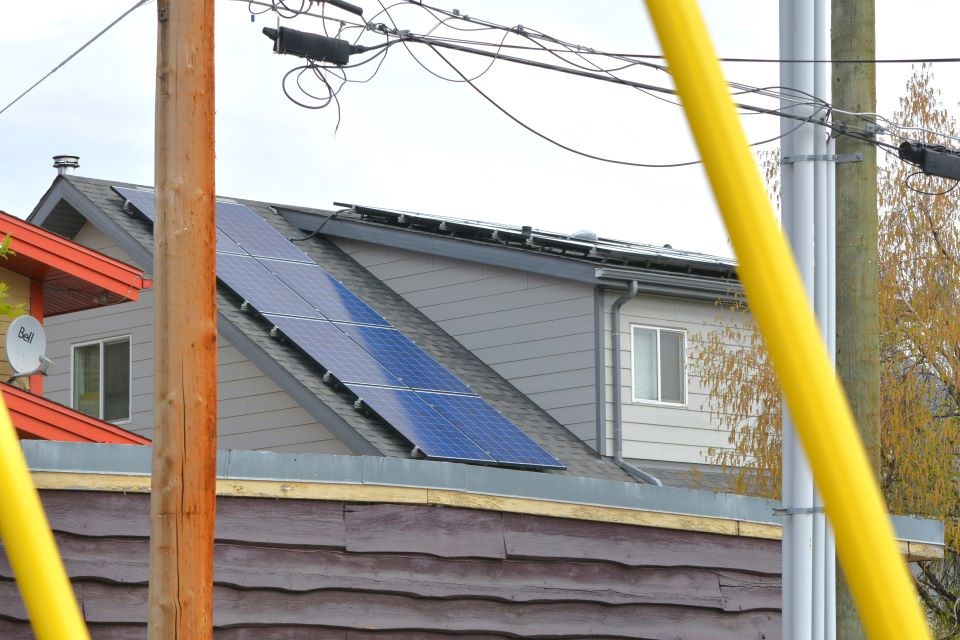Jasper Municipal Council recently reviewed the Clean Energy Improvement Program (CEIP) business case and directed administration to draft a CEIP bylaw to support a residential program.
The business case stems from a December 2022 decision that directed administration to work with program administrator Alberta Municipalities on the Province of Alberta’s Clean Energy Improvement Program and develop a Draft Clean Energy Improvement Tax bylaw at the same time.
“CEIP is a financing mechanism that allows property owners of residential or commercial properties to undertake energy efficiency or green energy initiatives on their property and to essentially finance that improvement over time through repayment through their property taxes or a special levy on their property taxes,” said CAO Bill Given during the May 14 committee of the whole meeting.
This method allows the cost of the improvement to be spread out over all the current and future owners of that property, he continued. It is meant to help defeat one of the main barriers to choosing the improvement in the first place: the upfront capital cost.
Oftentimes, capital improvements have a long payback period. Alberta Municipalities estimates that a typical residential project would likely cost $30,000 while the total financing cost would be $45,550 if spread over a 25-year period.
The business case states that such a project (assuming an equal split of the five per cent administrative fee) means that the municipality would collect approximately $750 as well as recouping its full upfront capital expense and the associated interest.
“People may consider the fact that they might not always live in that same property,” Given said.
“The CEIP program seeks to address that by allowing the cost of the improvements to stay with the property even though it may be sold over the course of the repayment period.”
There are 27 Alberta municipalities have CEIP bylaws, 17 of which have active programs. Banff is opening applications to its program this spring. It offers residential leasehold estate owners to finance up to 100 per cent of energy efficiency and renewable energy projects including everything from doors and windows to insulation and heating to solar panels and other renewable energy installations.
The Jasper business case, prepared by Energy and Environment Manager Mona El Dabee, states that the municipality’s participation would involve initial costs including a $14,762 onboarding fee as well as administrative expenses that would be integrated within existing municipal operations.
Jasper will be responsible for some of the program’s administration, such as securing capital for the program. Alberta Municipalities indicated that supporting a residential program would require annual borrowing of approximately $200,000 per year.
Alberta Municipalities’ webpage on the CEIP program states that Alberta households spend almost $5,000 a year on energy costs.
The benefits of the program aren’t just economic. Part of the intent is to encourage the upgrades to reduce greenhouse emissions and enhance community resilience.
Coun. Scott Wilson made the original December 2022 motion. During the committee of the whole meeting on May 14, he inquired about the business case’s figures for participation.
Alberta Municipalities estimated there would be seven projects for each of the first four years of the program, with the first year’s projects costing an average of $21,271.43 (requiring $148,900 in financing).
The costs would increase by approximately $1,100 each ending with the fourth year’s projects costing an average of $24,628.57 (requiring a total of $172,400 in financing). For 28 total projects over those four years would require $641,800 in financing.
“Admittedly, that is an estimate. If Council wanted to capitalize the program to a greater or lesser extent, obviously that would be your prerogative,” Given said.
“We could do that when we brought forward the bylaw. Obviously, having more money available in any given year would mean that more property owners could participate.”




